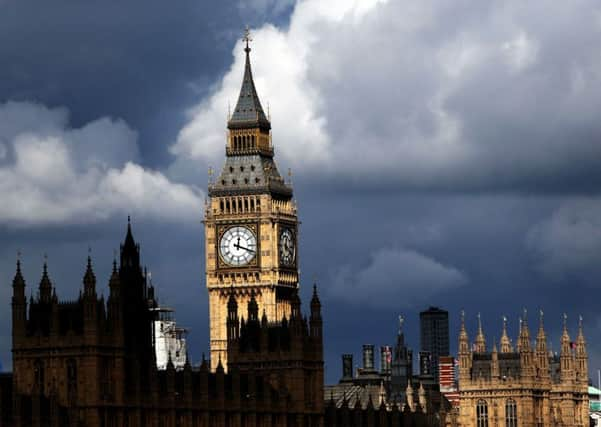Sam McBride: Westminster passing Stormont's budget will be direct rule in all but name


In his effort to do so, James Brokenshire even attempted to remove himself from the political decisions which the budget will entail – and on which Parliament will be asked to vote this month.
He argued that the budget would “incorporate figures provided by the Northern Ireland Civil Service reflecting their assessment of the outgoing priorities of the previous Executive”.
Advertisement
Hide AdAdvertisement
Hide AdThat suggestion that the core of the legislation would really reflect the assessment of the civil service – rather than his own – is striking, given that it will be tabled in his name and that the very essence of Westminster democracy is that public officials are subservient to elected politicians, not the other way round.
Mr Brokenshire went on to say: “I also want to be clear that passing a Budget in Westminster does not mean a move to direct rule … any more than the passing of legislation to set a regional rate did in April.”
That is a more explicit statement of what has been Mr Brokenshire’s preferred term for stepping into devolved territory – “greater government intervention”.
The reality is that if Westminster passes Stormont’s budget it will unquestionably be an act of direct rule, with the UK Parliament reclaiming an area which had been devolved.
Advertisement
Hide AdAdvertisement
Hide AdBut more than that, because of the fundamental nature of a budget to every aspect of the work of a government, in this instance it will represent wider direct rule in all but name. The most crucial piece of legislation which any legislature passes is its budget.
Without that power, Stormont is derived – albeit here entirely because of its own chronic failure – of its key competency.
Just as a householder who is not setting their own budget or a business whose bank is deciding how it can spend its money cannot say that they are in charge of their own affairs, so it is with government.
So why would Mr Brokenshire be engaging in what might seem a fairly semantic debate about whether a direct rule budget is direct rule?
The answer is probably two-fold.
Advertisement
Hide AdAdvertisement
Hide AdFirst, Mr Brokenshire has consistently made clear his reticence about taking responsibility for any devolved matter – even after months without anyone else to take such democratic responsibility.
He is making clear – particularly to nationalism – that he is not some trigger-happy Tory eager to re-take direct control of public services in Northern Ireland. If he ultimately does so, it will be in regret and as a final resort.
But a more pressing issue is probably a fear of how Sinn Féin may react to a direct rule budget.
Even though – or perhaps, because – the current lack of a budget is due to the failure of a Sinn Féin finance minister to bring forward a budget, Gerry Adams has warned that his party will consider what he describes as this phase of the talks with the DUP at an end if Westminster passes such a bill. Yet a failure to do so would result in the public sector literally running out of money, with potentially thousands of job losses.
Advertisement
Hide AdAdvertisement
Hide AdMore widely, Sinn Féin has gone beyond warning against direct rule and actually stated categorically that it will not happen. In August, Sinn Féin MLA Alex Maskey pledged that “no resolution [to the talks] will not involve a return to direct rule”.
Mr Adams warned of direct rule being a major breach of the Belfast Agreement with “international implications”.
Clearly, if direct rule does happen – and Sinn Féin cannot stop it, other than by returning to Stormont – the party is in a tricky position, particularly given the direct influence which it would hand to not just a Tory government but the DUP’s 10 MPs.
The government’s actions appear to hint at concern about the republican reaction to that scenario.
Advertisement
Hide AdAdvertisement
Hide AdBut significantly, in contrast to the stance of Sinn Féin and the SDLP, a statement from the Irish government yesterday appeared to tacitly accept – by saying that it was “the British government’s responsibility to ensure good governance in Northern Ireland” – that direct rule of some sort is the only alternative if the DUP and Sinn Fein cannot govern together.